Nelson Mandela died aged 95 on December 5, 2013. Speaking after the death of South Africa’s first democratically elected president, China’s President Xi Jinping told reporters that “the Chinese people will forever remember the outstanding contributions he made to the cause of human progress.”
In a speech to Peking University (PKU) in 1999, Mandela himself had praised the “unwavering political, diplomatic and material support of the Chinese people and government for South Africa’s struggle for liberation.”
Mandela was as much a fan of China as it was of him. In his autobiography Long Walk to Freedom, he wrote of reading Red Star Over China, Edgar Snow’s seminal 1937 account of Mao Zedong and the early struggles of the Communist Party, as well as Sun Tzu’s diplomatic favorite The Art of War.
“I made my way through the available literature on armed warfare and in particular guerrilla warfare,” Mandela wrote. “I wanted to know what circumstances were appropriate for a guerrilla war; how one created, trained and maintained a guerrilla force; how it should be armed; where it gets its supplies – all basic and fundamental questions.”
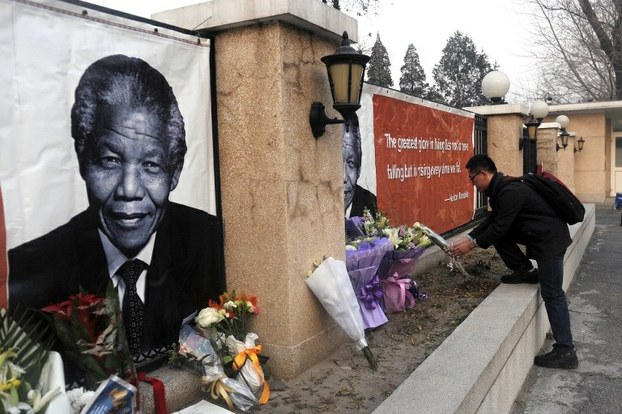
A man lays flowers in front of a portrait of Nelson Mandela outside the South African Embassy in Beijing, December 2013
By the time of the Sharpeville massacre in 1960, when Apartheid regime police opened fire on protesters, killing 69 people, including 8 women and 10 children, Mandela’s resistance movement went from preaching non-violence to an armed campaign. Mandela himself co-founded and became the first commander-in-chief of the African National Congress’ (ANC) militant wing, the Umkhonto we Sizwe, abbreviated as MK, and translated as ‘Spear of the Nation.’
Mandela began reading Mao Zedong as he built an insurgency from scratch, learning to make makeshift bombs from agricultural ingredients and targeting the apartheid regime’s infrastructure but – crucially – not the people.
Ironically, despite his professed admiration of Mao’s revolutionary and military tactics, when Mandela and the ANC sought funding in the 1960s from the People’s Republic of China (PRC), the Chinese government refused, not on grounds of non-intervention, but by saying the group was “insufficiently prepared” for guerrilla warfare.
Indeed, Mandela’s relationship with the PRC was not always harmonious. Having been first rebuked by China, the ANC turned for funding to the Soviet Union, with whom it maintained close links until the fall of the Berlin Wall in 1989. And the Republic of China (ROC) government in Taiwan also became an unlikely ally of Mandela’s. The ROC donated over US$15 million to the ANC’s 1994 election campaign, in a belated attempt to atone for its support of the Apartheid regime.
Though Mandela didn’t visit the Chinese mainland for the first time until 1992 – when he received an honorary degree from PKU and toured the Great Wall – during this period he publicly advocated for a ‘Two China’ solution, starkly at odds with Beijing’s ‘One China Policy’ with regard to Hong Kong, Macau and Taiwan.
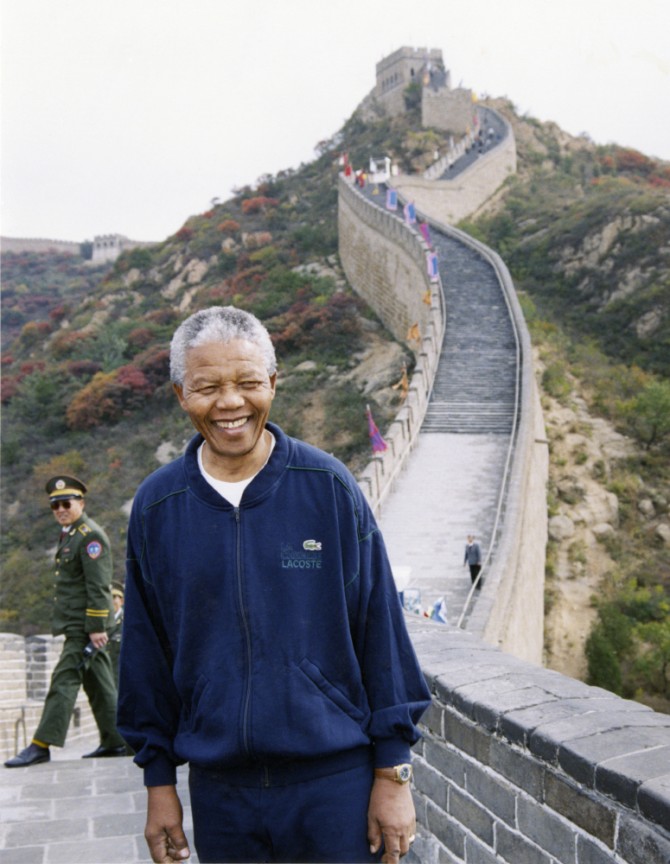
Nelson Mandela on the Great Wall of China, 1992
Yet Mandela was first and foremost a politician and, like many before him, he found his attitudes about China changed significantly when trade and the economy became a factor. In November 1996, amidst hard lobbying from members of his cabinet and the South African Communist Party, Mandela announced that Pretoria would sever ties with the ROC and officially recognize the PRC.
In 1999, as part of his presidential farewell tour, Mandela visited China for the first time as leader of South Africa. He met with then-president Jiang Zemin and premier Zhu Rongji in Beijing, and delivered the speech at PKU.
“As well as being members of the international community, China and South Africa also relate to one another as countries of Africa and Asia,” Mandela said, “as continents whose ancient civilizations and ties of trade and commerce were disrupted when the destinies of our continents and their peoples were subordinated to the interests of more powerful colonial forces.”
Mandela went on to emphasize what he saw as the future of the relationship: trade.
“China’s potential contribution, as one of the world’s largest economies and a leading figure in world affairs, cannot be exaggerated,” he declared. “Within the modest limits of its own capacities, South Africa is committed to working with China towards these goals.”
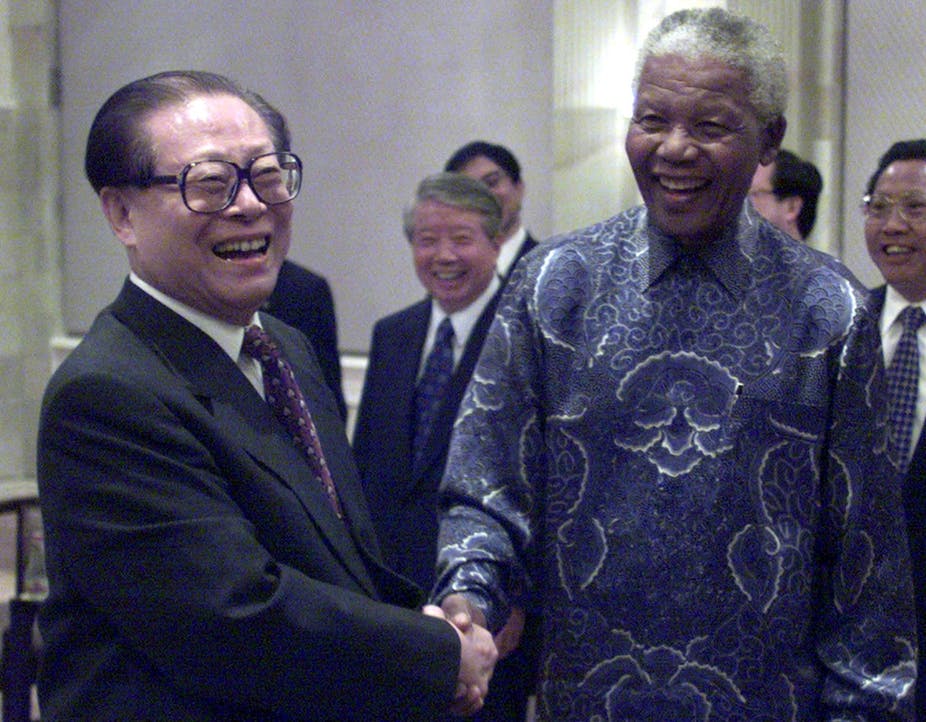
Nelson Mandela and Jiang Zemin
Reportedly, Mandela had a good relationship with his Chinese counterparts, and the health of Jiang Zemin, who Mandela first met during his 1992 visit, became something of a running joke between the two.
“How is my old friend President Jiang Zemin – is he well?” Mandela asked former premier Li Peng when he greeted Li on a state visit to South Africa in 1996. When Jiang himself visited the country in 2000, a newly-retired 82-year-old Mandela remarked in mock shock: “You look so good! I’m switching to your health plan.”
Though it may have started off on a shaky footing, Mandela helped craft a strong Sino-South African relationship, one which has been built upon considerably by his successors. In 2010, China overtook the US to become South Africa’s single largest trading partner and the PRC continues to pour cash into infrastructure projects across the continent in exchange for vital minerals and fuel. What the future holds is as uncertain as the price of oil, but there is little doubt that Mandela considered himself a true friend of China.
For more This Day in History stories, click here. This article first appeared in the January 2014 edition of That's and has been modified with updated information. For more Throwback Thursdays click here.
[All images via ANC]
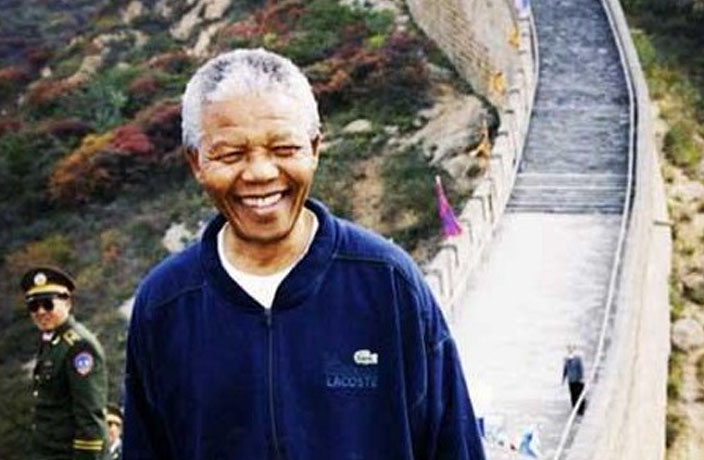




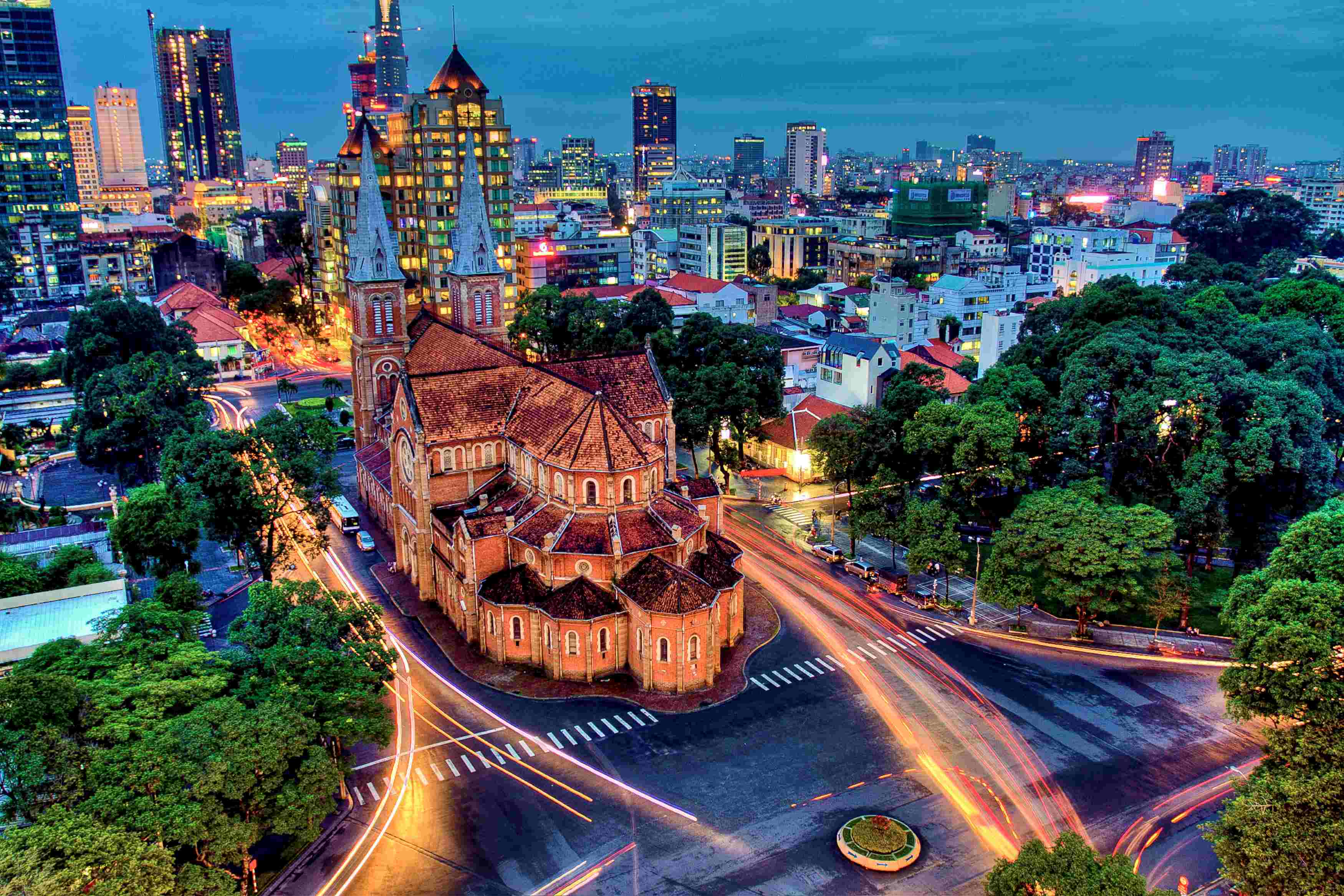
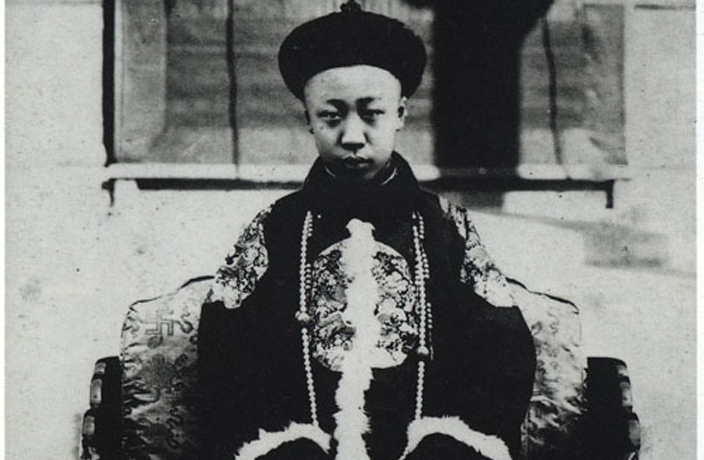
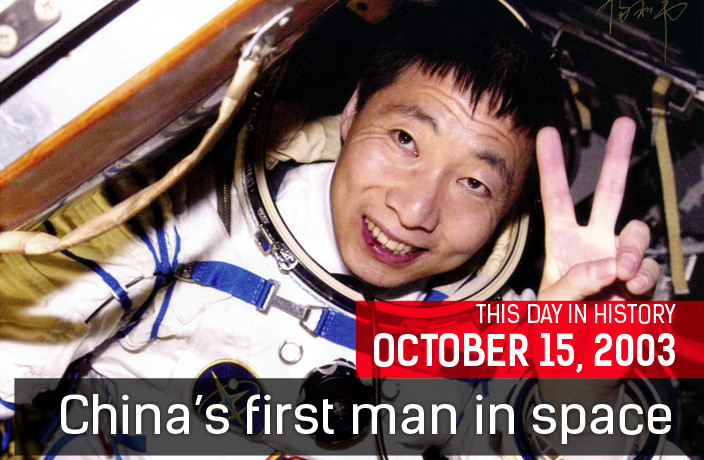














0 User Comments